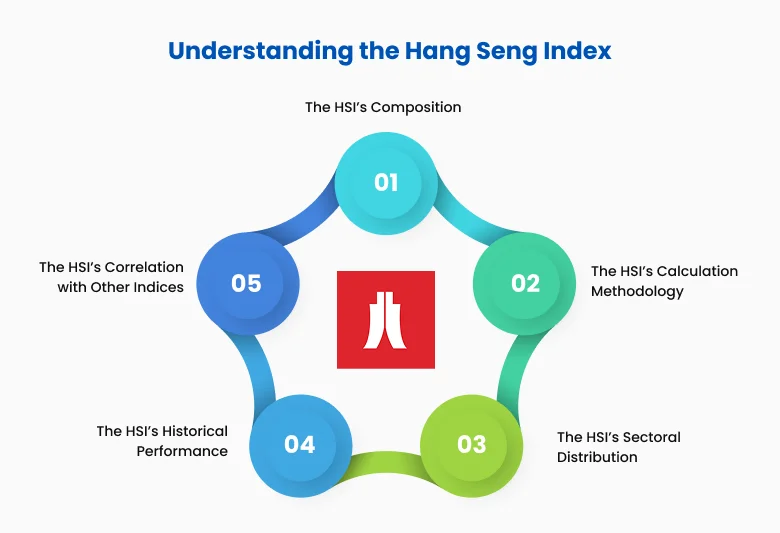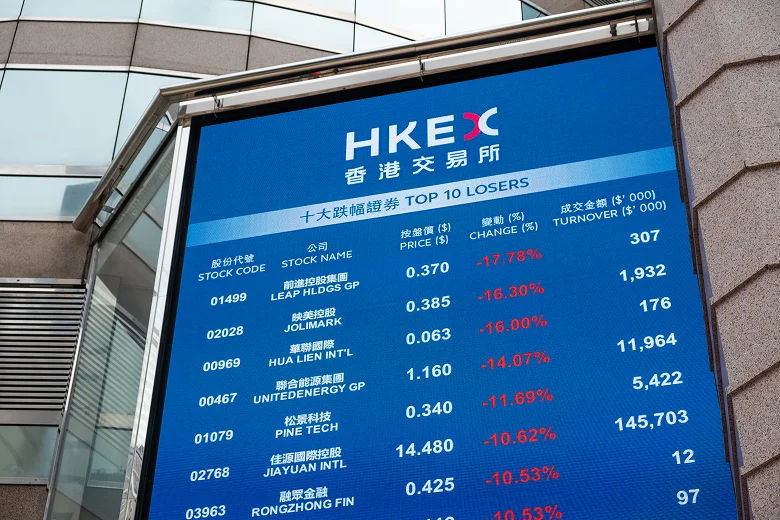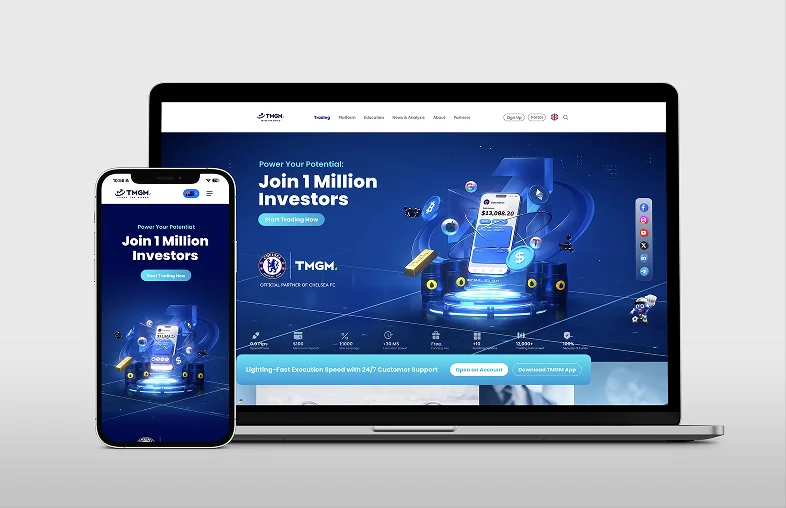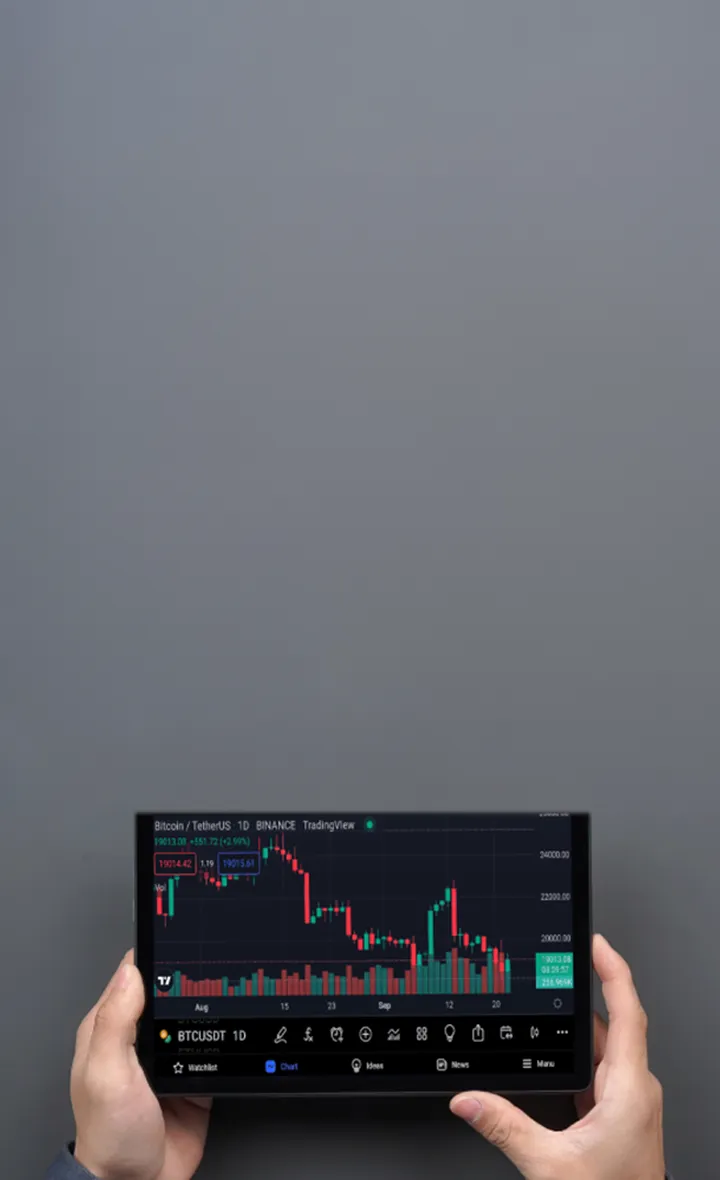What is the Hang Seng Index?
Established in 1969, the Hang Seng Index is a free-float-adjusted, market-capitalization-weighted index that tracks the performance of the top 50 companies on the HKEX. It serves as a primary indicator of the overall market performance in Hong Kong and is widely followed by investors worldwide.

Composition of the HSI
The index includes companies from various sectors:
Finance: Banks, insurance companies, and financial services firms (e.g., HSBC Holdings, AIA Group).
Information Technology: Tech giants and internet companies (e.g., Tencent Holdings, Alibaba Group).
Real Estate: Property developers and management firms (e.g., Sun Hung Kai Properties).
Consumer Goods and Services: Retailers, food and beverage companies (e.g., Budweiser Brewing Company APAC).
Utilities and Energy: Electricity, gas, and oil companies (e.g., CLP Holdings).
The HSI is periodically reviewed and adjusted to reflect market changes and ensure it remains representative of the Hong Kong economy.

Why Trade the Hang Seng Index?
#1 Exposure to Asian Markets
Economic Gateway: Hong Kong acts as a bridge between Western investors and China's booming economy.
Growth Potential: Access to rapidly growing sectors like technology and consumer services in Asia.
#2 High Volatility Equals Opportunities
Price Movements: The HSI's sensitivity to global and regional events creates frequent trading opportunities.
Active Trading Environment: Ideal for day and swing traders seeking short-term gains.
#3 Diversification
Sector Diversity: Broad exposure to multiple industries reduces the risk associated with individual stocks.
Geographical Diversification: Balances portfolios heavily weighted in Western markets.
#4 Liquidity and Accessibility
High Trading Volumes: Facilitates quick entry and exit from positions.
Global Trading Platforms: Widely available through international brokers and trading platforms.
#5 Hedging Strategies
Risk Mitigation: Offset exposure in other markets or assets by taking positions in the HSI.
Currency Advantage: Benefit from the Hong Kong dollar's peg to the US dollar, reducing currency risk.
Ways to Trade the Hang Seng Index
#1 Contracts for Difference (CFDs)
Flexibility: Trade on margin, allowing you to open larger positions with a smaller initial investment.
Leverage: Amplify potential profits (and losses) due to leveraged exposure.
Directional Trading: Ability to profit from both rising and falling markets by going long or short.
#2 Futures Contracts
Standardization: Traded on regulated exchanges with set contract sizes and expiration dates.
Leverage and Margin Requirements: Typically higher capital requirements than CFDs.
Liquidity: High liquidity during HKEX trading hours.
#3 Options Contracts
Strategic Flexibility: Implement various strategies like spreads, straddles, and hedges.
Limited Risk: Maximum loss is limited to the premium paid when buying options.
Complexity: Requires understanding of options pricing and Greeks (delta, gamma, theta, vega).
#4 Exchange-traded funds (ETFs)
Convenience: Buy and sell during market hours like regular stocks.
Diversification: Gain exposure to all the index constituents in a single trade.
Lower Costs: Generally lower management fees compared to mutual funds.
#5 Mutual Funds and Index Funds
Professional Management: Fund managers handle investment decisions and rebalancing.
Minimum Investment: This may require a higher initial investment compared to ETFs.
Fees: Management and performance fees can impact overall returns.
#6 Direct Equity Trading
Selective Exposure: Invest in specific companies within the HSI that align with your investment thesis.
Higher Risk and Reward: Potential for greater returns and higher risk than index trading.
Research Intensive: Requires in-depth analysis of individual company fundamentals.
Key Trading Strategies
Technical Analysis
Trend Analysis: Identify upward, downward, or sideways trends using moving averages and trend lines.
Support and Resistance Levels: Determine key price levels where the index may reverse or consolidate.
Chart Patterns: Recognize patterns like flags, pennants, and wedges that signal potential breakouts or reversals.
Indicators:
MACD (Moving Average Convergence Divergence): Helps identify trend direction and momentum.
Stochastic Oscillator: Indicates overbought or oversold conditions.
Average True Range (ATR): Measures market volatility.
Fundamental Analysis
Economic Data Monitoring:
Hong Kong Economic Indicators: Inflation rates, employment data, retail sales figures.
China's Economic Data: Given the close ties, China's GDP growth, manufacturing data, and policy changes are crucial.
Monetary Policy:
Interest Rate Decisions: Actions by the Hong Kong Monetary Authority can influence market liquidity.
Currency Stability: Impact of the HKD-USD peg on foreign investment flows.
Corporate Earnings:
Earnings Seasons: Quarterly reports can cause significant index movements.
Analyst Forecasts: Consensus estimates and revisions can affect investor sentiment.
News and Sentiment Analysis
Geopolitical Events:
US-China Trade Relations: Tariffs, trade agreements, and diplomatic relations can impact market dynamics.
Local Political Climate: Stability and regulatory changes in Hong Kong influence investor confidence.
Global Economic Trends:
Commodity Prices: Affect companies in the energy and materials sectors.
Interest Rates Globally: Shifts in major economies can affect the HSI's capital movement.
Investor Sentiment:
Market Surveys: Track bullish or bearish trends among institutional investors.
Social Media and News Feeds: Gauge public opinion and potential market-moving rumors.
Risk Management
Set Risk Tolerance Levels: Define the maximum amount you will lose on a single trade or overall portfolio.
Use Stop-Loss Orders: Automate exits to prevent significant losses in volatile markets.
Diversify Positions: Spread investments across different instruments or sectors.
Regular Portfolio Review: Adjust positions based on market changes and performance.
Psychological Discipline
Emotional Control: Avoid decisions based on fear or greed.
Stick to Your Plan: Follow your predefined trading strategy and rules.
Learn from Mistakes: Analyze losing trades to improve future performance.
Continuous Education: Stay updated with market developments and refine your strategies accordingly.
Best Times to Trade the Hang Seng Index
Trading Sessions
Hong Kong Trading Hours:
Morning Session: 9:30 AM to 12:00 PM HKT
Afternoon Session: 1:00 PM to 4:00 PM HKT
Pre-Market and After-Hours Trading: Some brokers offer extended hours, but liquidity may be lower.
Volatility Peaks
Market Open and Close: Increased activity and volatility during the first and last hours of trading.
Economic Data Releases: Scheduled announcements can cause sharp movements.
Overlap with Other Markets: Overlaps with European markets can influence trading volumes.
Consider Time Zones
Global Traders: Adjust trading schedules to align with Hong Kong market hours.
News Flow Timing: Major news events in other regions can impact the HSI outside regular trading hours.
Practical Steps to Start Trading the HSI
#1 Choose a Reputable Broker
Regulation: Ensure the broker is regulated by recognized financial authorities.
Product Offering: Access to HSI CFDs, futures, options, or ETFs.
Trading Platform: User-friendly interface with advanced tools and real-time data.
Customer Support: Reliable assistance when needed.
#2 Open and Fund Your Account
Registration: Provide necessary identification documents.
Deposit Funds: Use secure payment methods; be mindful of minimum deposit requirements.
#3 Utilize a Demo Account
Practice Trading: Familiarize yourself with the platform and test strategies without risking real money.
Simulate Real Conditions: Use live market data to experience actual trading environments.
#4 Develop a Trading Plan
Set Clear Objectives: Define your trading goals and time horizons.
Strategy Selection: Choose technical, fundamental, or combined approaches.
Risk Parameters: Determine stop-loss and take-profit levels.
#5 Execute Trades
Market Orders: Immediate execution at current market prices.
Limit Orders: Execution at a specified price or better.
Monitor Positions: Keep an eye on open trades and adjust as necessary.
#6 Review and Adjust
Performance Analysis: Regularly assess your trading results.
Strategy Refinement: Make necessary adjustments based on performance data.
Stay Informed: Keep up with market news and economic indicators.

Trading the Hang Seng Index with TMGM
TMGM offers a robust platform for trading the Hang Seng Index and other global financial instruments.
Benefits of Trading HSI with TMGM
Advanced Trading Platforms: Access MetaTrader 4 and MetaTrader 5 with comprehensive tools.
Competitive Pricing: Tight spreads and low commissions enhance profitability.
Leverage Options: Flexible leverage settings to suit different risk profiles.
Educational Resources: Webinars, tutorials, and market analysis to support your trading journey.
Dedicated Support: Multilingual customer service is available 24/5.
Tips for Successful HSI Trading
Stay Disciplined: Adhere strictly to your trading plan.
Manage Emotions: Avoid impulsive decisions based on market fluctuations.
Educate Yourself: Continuously learn about the markets and trading techniques.
Network with Other Traders: Join forums or groups to share insights and experiences.
Use Trading Tools: Leverage indicators, signals, and expert advisors to enhance decision-making.
Trading the Hang Seng Index can be rewarding for those who take the time to understand the market dynamics and develop effective trading strategies. The HSI offers a window into the economic pulse of Hong Kong and China, providing diverse opportunities for profit.
By focusing on comprehensive analysis, disciplined risk management, and continuous learning, you can navigate the complexities of the HSI market.
Partnering with a reliable broker like TMGM further enhances your trading experience by providing the necessary tools, resources, and support.









